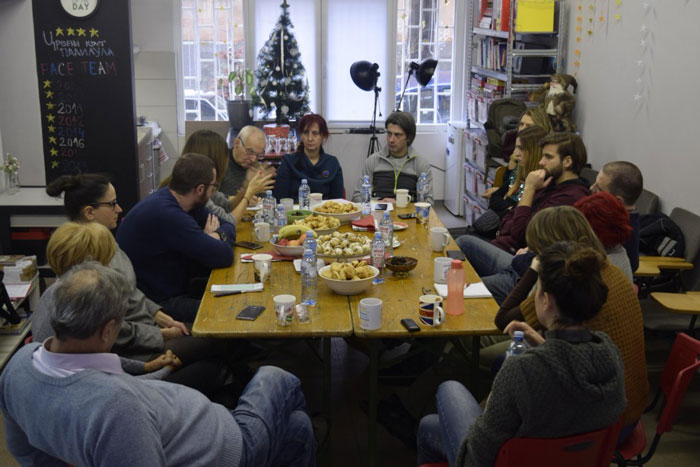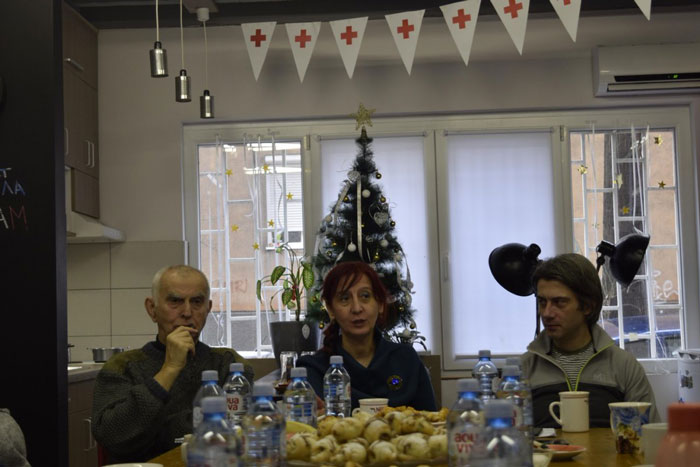First focus group interview in the “Intergenerational Exchange” project

As part of the research entitled “Intergenerational Exchange” that the Red Cross of Serbia is conducting with support of the Office of the Minister responsible for demographics and population policy, on 23 January at the Red Cross of Palilula premises the first focus group interview was organised, with participations of representatives of different generations. The representatives of younger generation, the middle, “sandwich” generation and the older generation agreed that solidarity between generations means primarily understanding and support. According to the opinions of the participants, the problems occur when there are nonverbalised expectations (ours of other people and vice versa) and they contaminate the relationships not only between generations but within the same generation as well.
Intergenerational solidarity does not take place only within a family, it also takes place at work, in public transportation, in the street, in institutions, at cultural events, as well as between neighbours in a building: “Intergenerational solidarity is all around us”.
Older people in the focus group are of the opinion that at the moment within families older generations are acting better towards younger members than vice versa. Today’s parents have lower expectations of their children.

Younger participants in the focus group interview think we have to be careful when this topic is at hand as expectations frequently put us in a bad situation and the key to solidarity is when one acts with love, not because of existing expectations. We should be solidary as a community and promote positive social values for a society where no one will be forgotten left behind.
Older persons primarily help with taking care of grandchildren, helping their own children be employed, as well with cooking, grocery shopping and other support services. On the other hand, younger persons help with providing care to older family members. Both younger and middle generation feel certain guilt as their work and other duties prevent them from spending sufficient time with older parents and grandparents.
Of course, there should be lines drawn, there are situations where special kinds of support are needed, that family members are not trained to provide. In such cases, systematic support is needed.
All the participants agreed that it is necessary to educate all generations in order to build social cohesion and solidarity at all levels, within all contexts. The topic should be covered at schools as well as clubs for older people in order to awaken intergenerational empathy.
